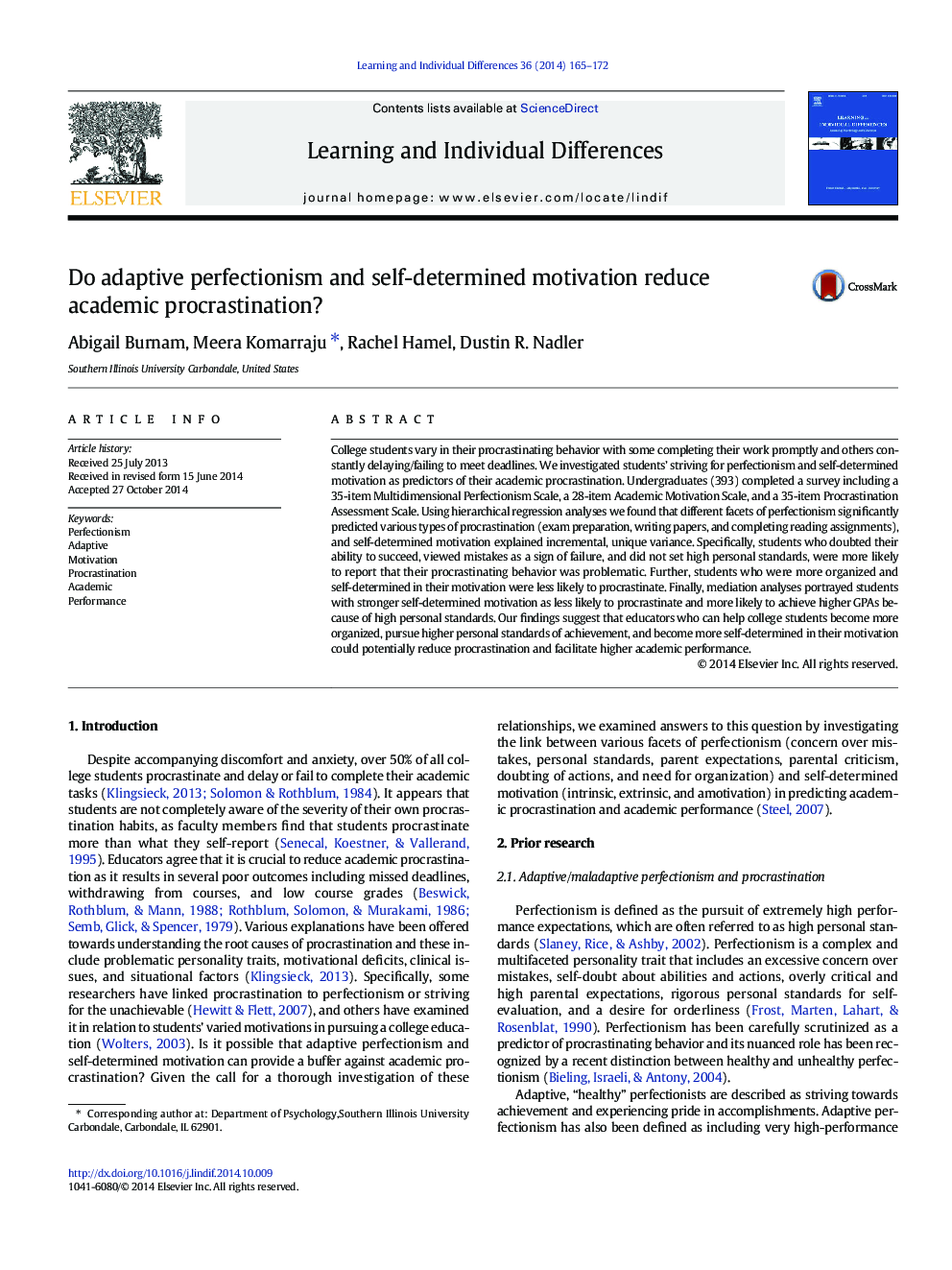| Article ID | Journal | Published Year | Pages | File Type |
|---|---|---|---|---|
| 6845040 | Learning and Individual Differences | 2014 | 8 Pages |
Abstract
College students vary in their procrastinating behavior with some completing their work promptly and others constantly delaying/failing to meet deadlines. We investigated students' striving for perfectionism and self-determined motivation as predictors of their academic procrastination. Undergraduates (393) completed a survey including a 35-item Multidimensional Perfectionism Scale, a 28-item Academic Motivation Scale, and a 35-item Procrastination Assessment Scale. Using hierarchical regression analyses we found that different facets of perfectionism significantly predicted various types of procrastination (exam preparation, writing papers, and completing reading assignments), and self-determined motivation explained incremental, unique variance. Specifically, students who doubted their ability to succeed, viewed mistakes as a sign of failure, and did not set high personal standards, were more likely to report that their procrastinating behavior was problematic. Further, students who were more organized and self-determined in their motivation were less likely to procrastinate. Finally, mediation analyses portrayed students with stronger self-determined motivation as less likely to procrastinate and more likely to achieve higher GPAs because of high personal standards. Our findings suggest that educators who can help college students become more organized, pursue higher personal standards of achievement, and become more self-determined in their motivation could potentially reduce procrastination and facilitate higher academic performance.
Related Topics
Social Sciences and Humanities
Psychology
Developmental and Educational Psychology
Authors
Abigail Burnam, Meera Komarraju, Rachel Hamel, Dustin R. Nadler,
